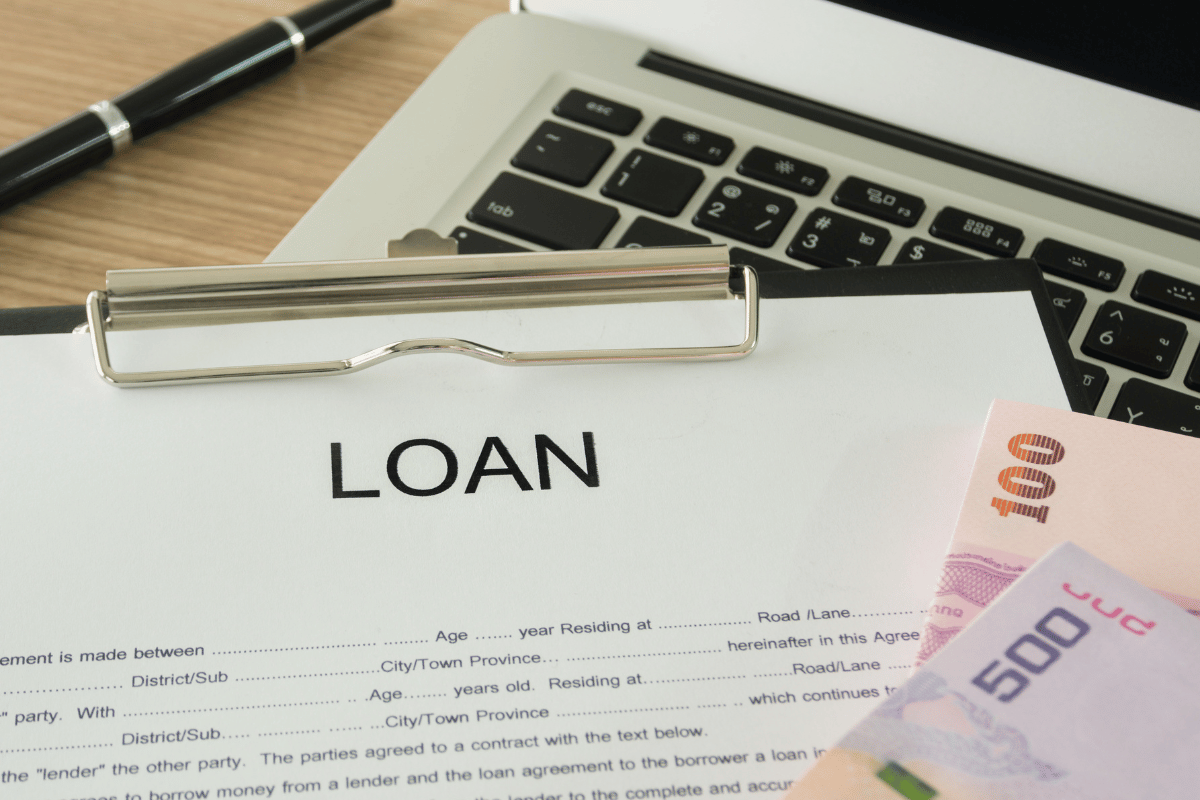Whether you’re paying off credit card debt, handling a medical bill, or doing home repairs, a personal loan can help cover the cost quickly. But getting a loan isn’t just about filling out a form. You need to understand how loans work, what the terms mean, and how to choose the right lender for your needs.
There are many types of lenders in Singapore – banks, licensed moneylenders, and online platforms. Each offers different rates, fees, and approval requirements. If you don’t take time to compare, you might end up paying more than necessary.
Here’s what you need to know about securing a personal loan in Singapore, from checking your eligibility to getting the funds in your account.
Key Takeaways
- Check your Credit Bureau Singapore (CBS) score first to understand your approval chances and improve your loan offers
- Use an Effective Interest Rate (EIR) calculator to estimate true monthly repayments, including all fees and compounding costs
- Compare personal loan offers from banks, licensed moneylenders, and digital platforms to find the best rates and terms
- Eligibility typically requires a minimum annual income of S$20,000 for locals and a stable credit history
- You can usually borrow up to four times your monthly income, with higher limits available for top-tier earners above S$120,000
- Prepare documents such as NRIC, payslips, and income proof before applying to speed up approval and disbursement
- Singapore licensed money lender are regulated by the Ministry of Law and offer faster, more flexible approvals for borrowers with lower credit scores
- Always assess your budget and repayment capacity before taking a loan to avoid late fees and protect your credit score
What Is a Personal Loan?

A personal loan is essentially unsecured credit – which means you don’t need to pledge any collateral like your flat or car to access the funds. The lender offers you a lump-sum amount that you repay in fixed monthly instalments over a set period, typically ranging from 6 months to 7 years.
There are two main types you’ll encounter:
Fixed-rate loans: Your interest rate and monthly repayments stay the same throughout the loan term. This gives you predictability in budgeting, which most borrowers prefer.
Variable-rate loans: Your interest rate may change depending on market conditions, which affects your monthly payments. These are less common for personal loans but worth understanding.
It’s also worth distinguishing between term loans and revolving credit:
Term loans give you the full amount upfront with fixed repayments over a specific period. This is what most people think of when they hear “personal loan.”
Revolving credit facilities like credit lines allow you to borrow, repay, and borrow again up to a set limit, with interest only charged on the amount you actually use.
For most borrowers looking for a one-off injection of funds – say, to pay off high-interest credit cards or cover a major expense – a fixed-rate term loan is the most straightforward option.
Eligibility Criteria
Before you start comparing offers, make sure you meet the basic requirements. These vary slightly across lenders, but generally include:
1. Minimum Annual Income
- Citizens and PRs: Typically S$20,000 to S$30,000 annually
- Foreigners: Some lenders require S$40,000 or more, depending on work pass type
2. Residency Status
Citizens, Permanent Residents, and certain work pass holders may be eligible. You’ll need to show proper documentation to verify your status.
3. Credit Score Requirements
Singapore uses the Credit Bureau Singapore (CBS) score, which ranges from 1,000 to 2,000. A higher score improves your chances of approval and helps you secure better rates.
Your credit score reflects your history of repaying loans, credit card bills, and other debts. Missed or late payments will hurt your score, while consistently prompt payments will help it improve over time.
Loan Amounts and Limits
The amount you can borrow depends mainly on your income and credit profile. Here’s how it typically works:
- Standard borrowers: Up to four times your monthly income
- High earners (above S$120,000 annually): May qualify for up to eight times monthly income
- Lower income borrowers (below S$20,000 annually): Usually limited to twice your monthly income
That said, every lender sets their own internal caps. Don’t be surprised if Bank A approves you for S$30,000 while Bank B caps you at S$20,000 for the same profile. That’s precisely why comparing offers matters.
How to Get a Personal Loan in Singapore: 7 Essential Steps
Getting a personal loan doesn’t have to be overwhelming. Follow these steps to improve your chances and find a deal that works for your budget.
1. Check Your Credit Score
Start by checking your credit report through Credit Bureau Singapore. It costs under S$10 and gives you visibility into what lenders see when they assess your application. This helps you understand whether you’re in a good position to apply or if it’s better to improve your score first.
A higher CBS score not only improves approval chances but also helps you qualify for lower interest rates. If your score needs work, consider paying down existing debts and ensuring all bills are paid on time before applying.
2. Estimate Monthly Payments with an EIR Calculator
The Effective Interest Rate (EIR) reflects the true cost of borrowing, factoring in fees and compounding. Don’t just look at the advertised rate – use an EIR calculator to estimate what your monthly repayment would look like across different loan tenures and interest rates.
For example, a S$20,000 loan at 6% EIR over 24 months might cost you around S$885 monthly, while the same loan over 36 months could be about S$608 monthly – but you’ll pay more total interest over the longer term.
3. Compare Loan Providers
Interest rates, processing fees, disbursement time, and early repayment penalties all vary significantly. Banks tend to offer lower rates to borrowers with excellent credit, while licensed moneylenders have more relaxed criteria but charge higher interest.
Online loan comparison tools can help you quickly sort through options, but don’t rely solely on these. Sometimes the best deals require speaking directly with lenders.
4. Look for Pre-Qualified Offers
Some banks and digital lenders let you do a soft credit check, giving you personalised offers without affecting your credit score. This is brilliant for narrowing down choices before making a full application.
Pre-qualification shows you realistic rates and amounts you’re likely to receive, rather than the “best case” rates often advertised.
5. Prepare the Required Documents
Commonly requested documents include:
- NRIC or passport (for foreigners)
- Latest payslips (typically 1 to 3 months)
- CPF contribution history or Notice of Assessment for income verification
- Employment pass/work pass (for foreigners)
- Bank statements (sometimes required)
Having these ready speeds up the process considerably. Many lenders now accept digital uploads, which can cut approval time from days to hours.
6. Apply Online or In Person
Many banks and digital lenders now allow full online applications, including document uploads and identity verification. If you prefer human interaction or have complex circumstances, visiting a branch is still an option.
Online applications are generally faster, but branch applications might give you more flexibility in explaining your situation if your profile isn’t straightforward.
7. Receive Approval and Funds
If approved, the loan amount is disbursed to your designated bank account. Digital platforms often manage this within 24 to 48 hours, while traditional banks may take a few working days.
Some lenders offer instant approval for well-qualified applicants, though this usually applies to smaller loan amounts and borrowers with excellent credit profiles.
Interest Rates and Fees
Understanding how interest works is crucial when figuring out loan costs in Singapore. Here’s what you need to know:
Applied Rate (AR) vs Effective Interest Rate (EIR)
Applied Rate (AR): The headline rate advertised by lenders, typically between 3% and 9% per annum. This looks attractive but doesn’t tell the full story.
Effective Interest Rate (EIR): The real rate once fees and compounding are considered, ranging from 1.85% to 12% per annum, depending on your profile and loan terms. This is what actually matters for your budget.
Additional Costs to Consider
- Processing fees: Usually 1% to 3% of the loan amount
- Late payment charges: Can be substantial, often S$60-100 per occurrence
- Tenure change fees: If you want to shorten or extend your loan term
- Early repayment penalties: Usually a fixed fee or percentage of outstanding balance
Always ask for the total cost breakdown before signing anything. Some lenders are more transparent about fees than others.
Repayment Terms That Make Sense
Loan tenure matters more than you might think. A longer tenure may reduce your monthly instalment but increases the total interest paid over time. Conversely, a shorter loan term means higher monthly payments but lower overall cost.
Here’s a practical example:
S$20,000 loan at 6% EIR:
- 12-month term: Higher monthly instalment (~S$1,720), less total interest paid
- 36-month term: Lower monthly instalment (~S$608), but significantly more interest over the full term
If you have the flexibility to repay early, ask your lender about early repayment penalties. Some allow early payoff with minimal or no fees, which can help you save considerably on interest.
Comparing Lenders: Banks vs Licensed Moneylenders
| Aspect | Banks | Licensed Moneylenders |
|---|---|---|
| Interest Rates | Lower for good credit (1.85%-8% EIR) | Higher but capped (up to 4% monthly) |
| Approval Speed | 2-7 working days | Same day to 24 hours |
| Credit Requirements | Stricter, prefer higher scores | More flexible, accept lower scores |
| Documentation | More comprehensive | More flexible requirements |
| Loan Amounts | Higher limits available | Generally smaller amounts |
| Regulation | MAS oversight | Ministry of Law regulation |
| Reputation | Established institutions | Regulated but variable quality |
Key Considerations and Responsible Borrowing
A personal loan can be a helpful financial tool when used wisely, but it comes with responsibilities. Here’s what you should keep in mind:
Licensed Moneylenders Are Regulated
All licensed moneylenders in Singapore must comply with strict rules set by the Ministry of Law. This means borrowers are protected by clear terms, capped interest rates, and transparent fees. However, always verify a moneylender’s licence before engaging with them.
Borrow with Purpose
Always borrow for a specific and necessary reason, such as:
- Consolidating high-interest debt
- Covering urgent medical expenses
- Essential home repairs
- Education costs
Avoid borrowing for discretionary spending like holidays or luxury items unless you’re certain about repayment.
Know Your Budget Inside Out
Before taking any loan, calculate your monthly expenses and ensure repayments fit comfortably within your budget. A good rule of thumb is keeping total debt service (including the new loan) below 30% of your monthly income.
Maintain Financial Discipline
Use the loan wisely and repay it on time to avoid late fees and keep your credit standing strong. Late payments can damage your credit score and make future borrowing more expensive.
Common Mistakes to Avoid
Don’t shop based on monthly payments alone. A lower monthly payment often means a longer loan term and more total interest paid.
Don’t ignore the fine print. Early repayment penalties, late fees, and other charges can significantly impact the total cost of your loan.
Don’t apply to multiple lenders simultaneously. Each application typically involves a hard credit check, which can temporarily lower your credit score.
Don’t borrow more than you need. Just because you’re approved for S$50,000 doesn’t mean you should take the full amount if you only need S$20,000.
What If You’re Rejected?
If your application is rejected, don’t panic. Here are your options:
- Ask for specific reasons from the lender
- Improve your credit score by paying down debts and ensuring timely payments
- Consider a co-signer if available
- Try a licensed moneylender with more flexible criteria
- Wait and reapply after improving your financial profile
Making the Right Choice
The best personal loan for you depends on your specific circumstances, credit profile, and financial goals. Take time to compare multiple offers, understand the true costs involved, and choose a reputable lender.
Remember, a personal loan is a serious financial commitment. Borrow responsibly, ensure repayments fit your budget, and always have a clear plan for how you’ll use the funds.
If you’re ready to explore your options, start by checking your credit score and gathering the necessary documents. With proper preparation and comparison shopping, you can find a loan that meets your needs without breaking your budget.
The key is being informed, comparing carefully, and borrowing only what you can comfortably repay. Done right, a personal loan can provide the financial flexibility you need while maintaining your long-term financial health.



